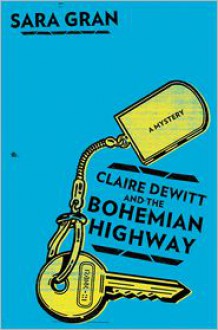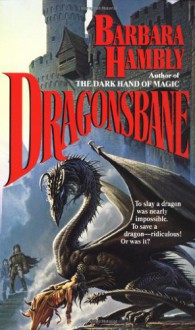
"Claire Dewitt and the City of the Dead" is an extraordinary book: fascinating, rewarding, often upsetting but really hard to describe.
It's a book that invites the reader to look beyond the narrative and ask themselves questions about mysteries: our ability to see them, our willingness to solve them and how we continue on day by day while the truth of our own lives constantly slips through our fingers.
I entered it expecting a whodunnit mystery with some local New Orleans colour and a clever plot. Two hours into it, I had no idea what it was about. I knew what was happening but I'd started to understand that that was the answer to a different question.
This was Noire but not as I know it. I was reading something that seemed to be the lovechild of Raymond Chandler and Jean-Paul Satre.
Claire Dewitt, a PI who makes Philip Marlowe seem like a romantic softy with a tendency to take things too literally, solves cases, sorry, mysteries, by using a kind of muscular mysticism that is stretched tight over a skeleton of existential panic with grief as its marrow.
More than a year after Katrina, Claire is investigating the disappearance and possible death of a wealthy District Attorney in New Orleans during the storm. She is guided in this by a book called "Détection" by Cillette, a French criminologist who has a very out-there view of what detection is.
For Cillette, detection is about following clues to find the truth. By following he seems to mean: giving yourself up to the flow so you can see the bigger picture. By clues, he seems to mean all the things that we don't let ourselves see but which, once seen, will change our understanding fundamentally. By truth he seems to mean... well, actually that's something he wants us to work for ourselves.
In "Détection" he tells us that a detective can most quickly solve a mystery by looking in all the places she is certain do not contain the answers:
"...because this for better or worse is exactly where the truth lies at the intersection of the forgotten and the ignored, in the neighbourhood of all we have tried to forget."
At the start of the novel, there is little action. There are a lot of mundane frustrations and a lot of waiting and slowly dawning awareness that Claire Dewitt is a very driven and very damaged person who is following her own agenda to hunt down the truth using methods taught to her by her now deceased mentor, Constance.
Despite the inaction, I found myself carried along by the absolute authority of the writing and the vivid descriptions of the desolation of much of post-Katrina New Orleans.
This is not the New Orleans the tourist office would like to sell and that many crime novels dress themselves in. This New Orleans is a city that has been broken and abandoned and is now being cynically abused. A city with the highest murder rate in the country and a legal system so corrupt in under-resourced that even the few people arrested for murder are mostly released after sixty days because there is no capacity to process them. This is city populated by people who have survived the equivalent of a war but a war in which their own government gave them no support. Sara Gran captures it with the precision of a documentary maker and Claire Dewitt sees it with the slow but constant anger of one who has long ago ceased to believe in happy endings.
It seems to me that one of the clues to this book is in the title (well duh!) in that it is primarily about Claire Dewitt, her history, who she is now, who she may become and about a New Orleans haunted by the dead from Claire's past, from the mystery she is investigating and from the storm and its aftermath. There is a clever and convincing plot but it provides the framework for understanding Claire in the context of this city of ghosts.
Sara Gran brings the city to life through the people Claire meets, the lost, the broken, the violent and the traumatised. One of these is an ex-colleague or hers. They had the same mentor but are no longer following the same path. He lost everything in the storm and is now trying to redeem himself and restore his faith in the possibility of goodness by volunteering to work with kids in trouble with the law. After a meeting in Claire's motel room to discuss the disappearance of the DA we get a description of him that gives a flavour of this book:
"I remembered what he used to smell like: woodsy and sweaty. I rolled over on the bed to the spot where he'd lay. He didn't smell like that any more. Now he smelled like pot and plaster dust and smoke and mould. Like sadness. Like New Orleans."
At one point, early in the book, Claire talks about the first time she and her teenage friends read "Détection". Her experience of it is eerily similar to what Sara Gran put me through.
"'Détection' was a door to another world. A world where, even if we didn’t understand things, we were sure they could be understood. A world where people paid attention, where they listened, where they looked for clues. A world where mysteries could be solved or so we thought.
By the time we realised we were wrong, that we had misunderstood everything, it was too late, Cillette had already branded us. For better or worse, we were not the same girls any more."
I realise that I often retreat to crime books and mystery books because they create a mythical world where cause and effect are not only understood but result in some kind of accountability. Real life, mine at least, is rarely like that. In "Claire Dewitt and the City of the Dead" I'm invited to think about why that is.
This is a book about finding the truth and I found myself fascinated by the insights that appeared like nuggets of gold as I sifted through the narrative. I liked Constance's advice to a young Claire:
"Never be afraid to learn from the ether," Constance told me. "That's where knowledge lives before someone hunts it, kills it and mounts it in a book."
Or Frank, an ex-soldier who, when Claire shares with him what really happened to the missing DA, says:
"The thing about the truth", Frank said after a while, "It's never just what you want it to be is it?"
The dialogue in this book is beautifully done, capturing patterns of speech without patronising them. The passage below, in which a young, uneducated boy describes his experience of reading "Détection", is a great example of this and also reflects how I felt about "Claire Dewitt and the City of the Dead" after finishing it:
"I mean, honest, it don't make no sense to me", he said "And it's hard but I, I don't know, I kinda like it anyway. Like there's this one little thing he says, it's kinda like my favourite, he says something like, if you hold on to a mystery you're never gonna to succeed. You gotta let it go through your fingers and then it come to ya and it tell you everything. I don't know I like it."

Sara Gran is now on my Must-Read-Everything-They-Write list. There are two more Claire Dewitt novels and a number of standalone books waiting for me.
You can learn more about her and her books here
 My enjoyment of "Claire Dewitt and the City of the Dead" was greatly enhanced by the nuanced narration delivered by Carol Monda. I'll be looking out for books she has narrated. You can hear a sample of her work by clicking on the SoundCloud link below.
My enjoyment of "Claire Dewitt and the City of the Dead" was greatly enhanced by the nuanced narration delivered by Carol Monda. I'll be looking out for books she has narrated. You can hear a sample of her work by clicking on the SoundCloud link below.
[soundcloud url="https://api.soundcloud.com/tracks/259124128" params="color=#ff5500&auto_play=false&hide_related=false&show_comments=true&show_user=true&show_reposts=false&show_teaser=true&visual=true" width="100%" height="300" iframe="true" /]

 Log in with Facebook
Log in with Facebook 









